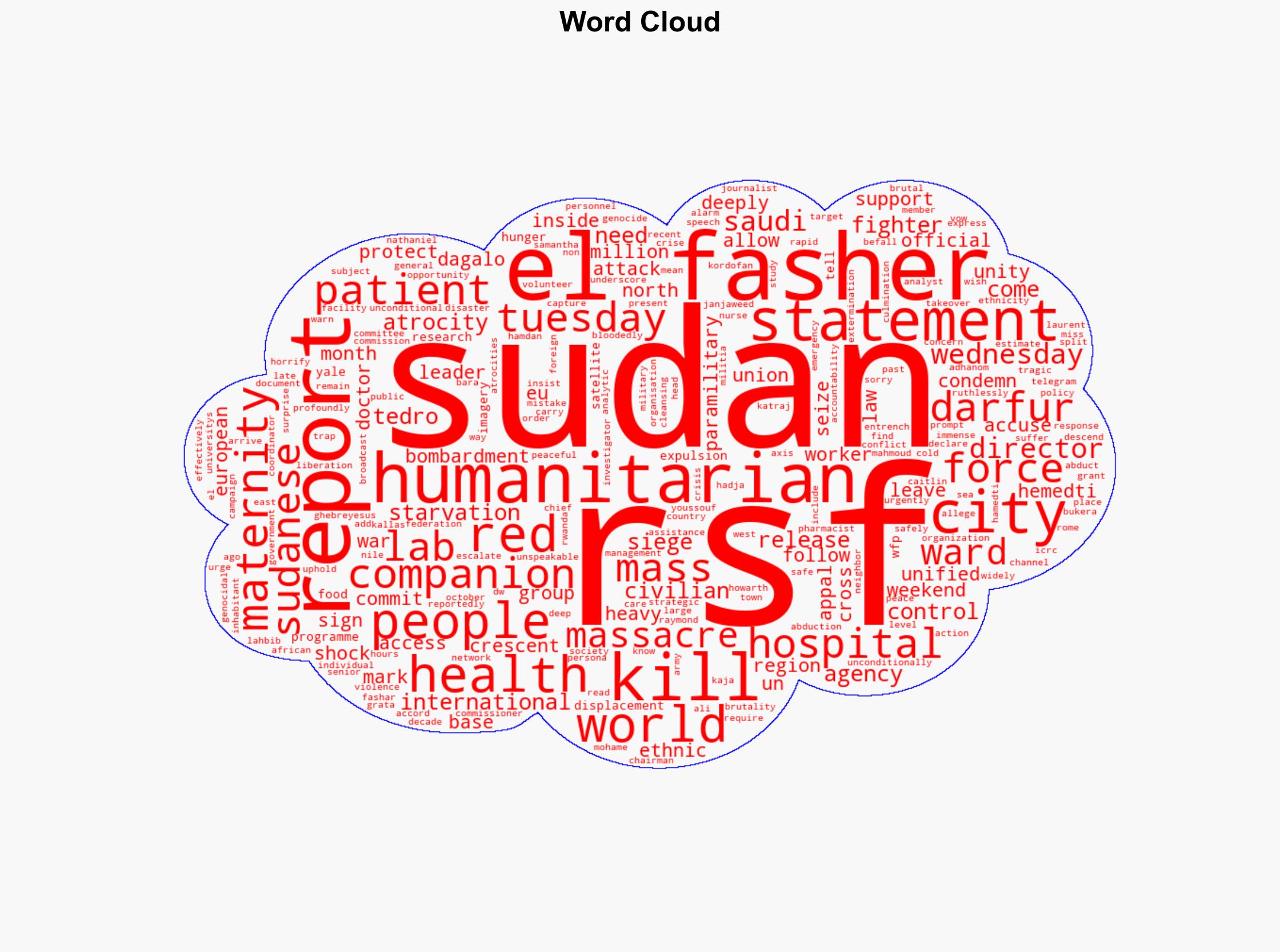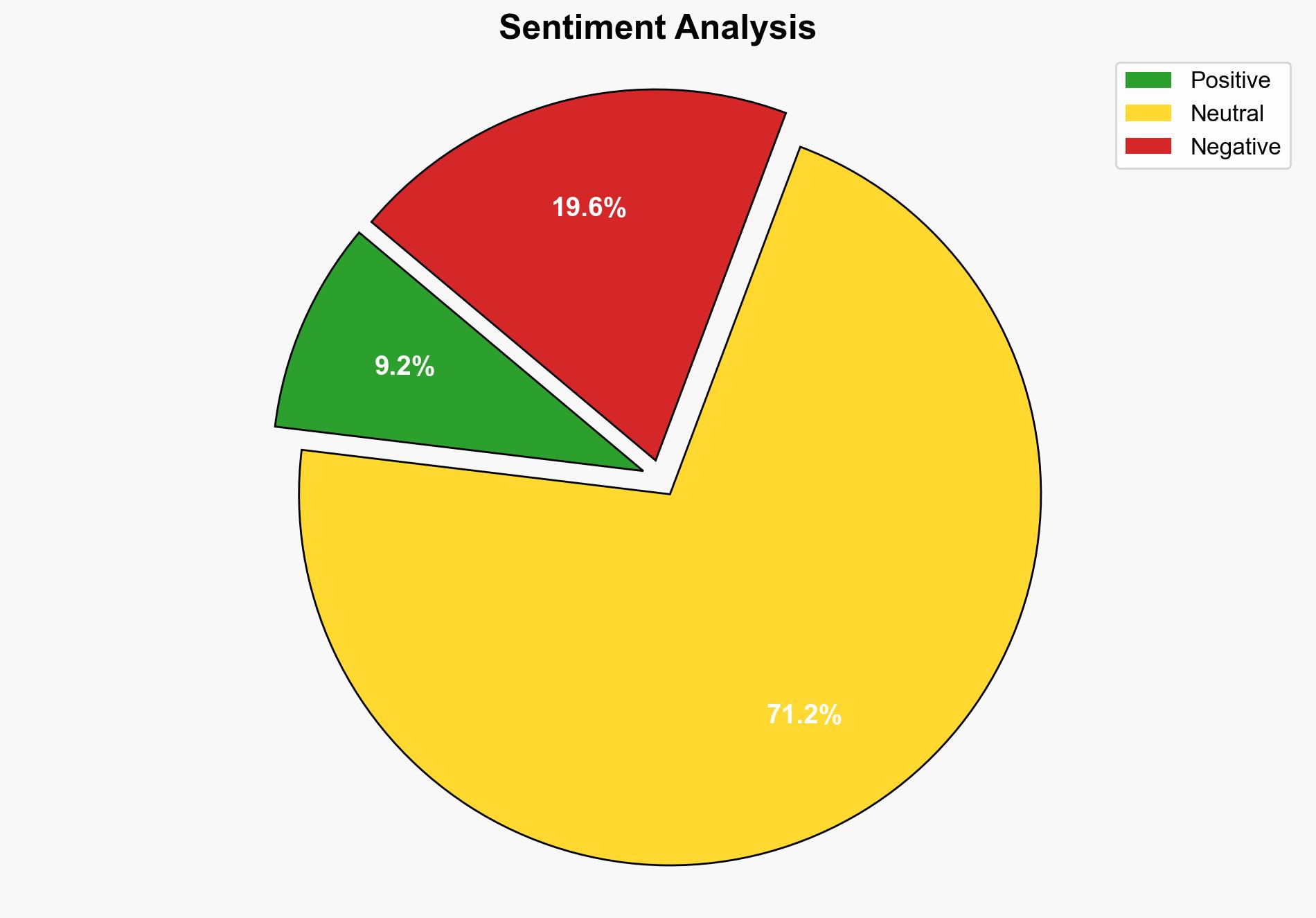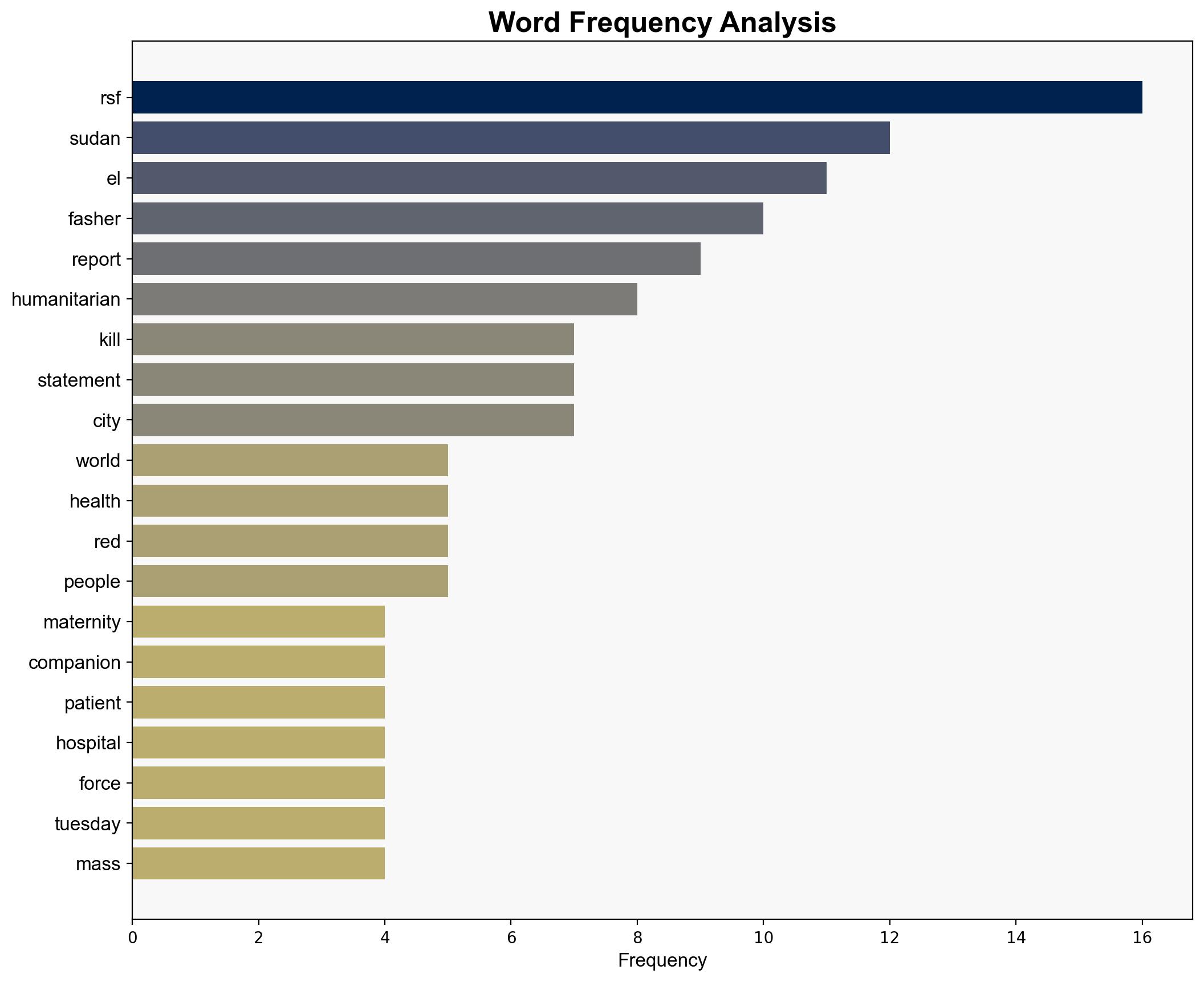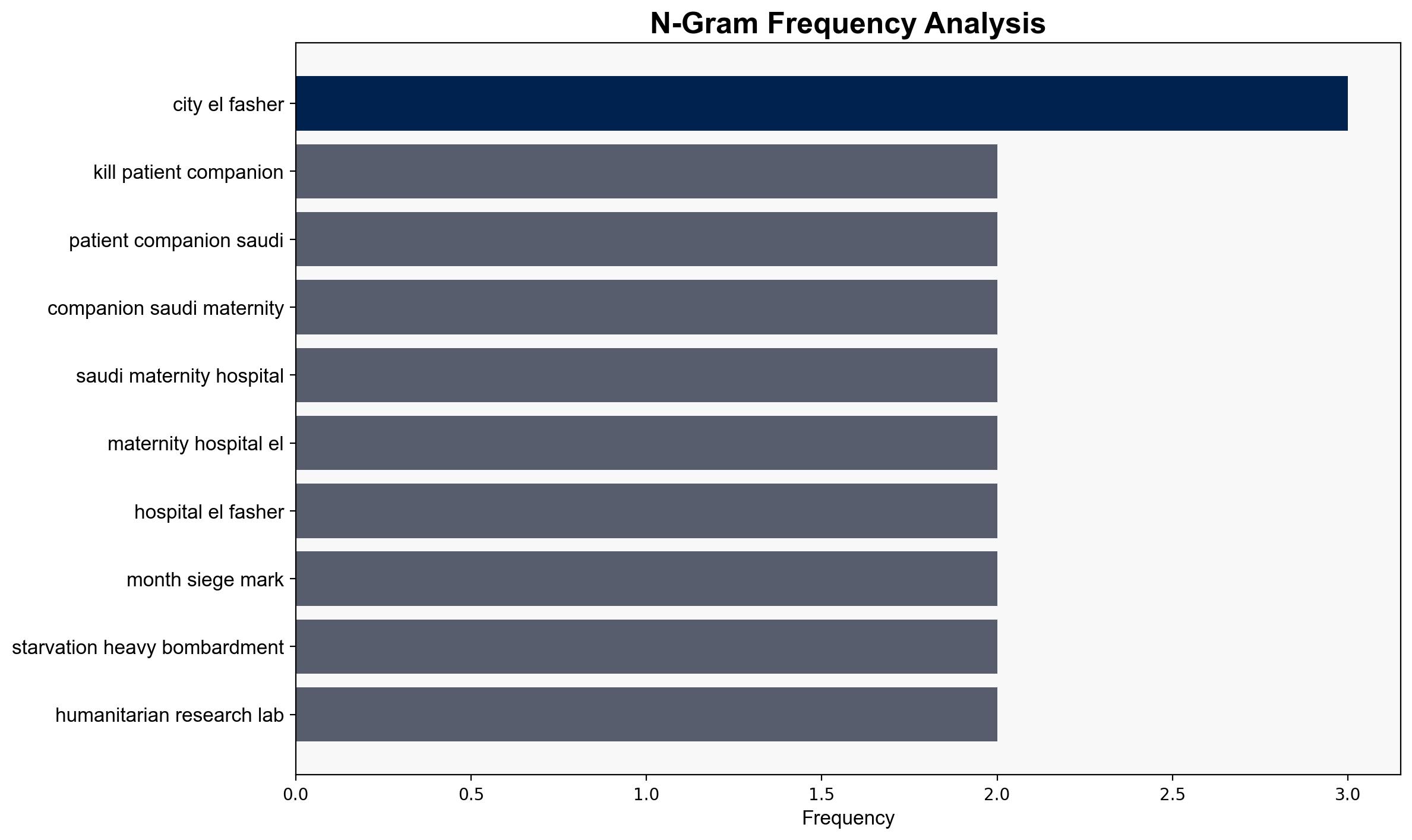EU condemns Sudan militia ‘brutality’ in El-Fasher takeover – DW (English)
Published on: 2025-10-29
Intelligence Report: EU condemns Sudan militia ‘brutality’ in El-Fasher takeover – DW (English)
1. BLUF (Bottom Line Up Front)
The most supported hypothesis is that the Rapid Support Forces (RSF) are using extreme violence as a strategic tool to consolidate control over El-Fasher, exacerbating humanitarian crises and ethnic tensions. Confidence Level: High. Recommended action includes international diplomatic pressure and humanitarian intervention to mitigate further atrocities and stabilize the region.
2. Competing Hypotheses
1. **Hypothesis A**: The RSF are deliberately targeting civilians and healthcare facilities to instill fear and assert control over El-Fasher, leveraging ethnic divisions to maintain power.
2. **Hypothesis B**: The RSF’s actions are a result of fragmented command and lack of discipline, leading to uncontrolled violence by rogue elements within the group.
Using the Analysis of Competing Hypotheses (ACH) 2.0, Hypothesis A is better supported by consistent reports of systematic brutality and ethnic targeting, as well as the strategic significance of controlling El-Fasher. Hypothesis B is less supported due to the coordinated nature of the attacks and the RSF leadership’s public statements.
3. Key Assumptions and Red Flags
– **Assumptions**: Hypothesis A assumes RSF leadership has full control over its forces and is strategically using violence. Hypothesis B assumes lack of control and discipline within RSF ranks.
– **Red Flags**: Potential bias in reports from affected parties and international organizations. Lack of independent verification of events on the ground.
– **Blind Spots**: Limited access to real-time intelligence from El-Fasher and potential underreporting of RSF internal dynamics.
4. Implications and Strategic Risks
– **Humanitarian Crisis**: Continued violence could lead to mass displacement and exacerbate famine conditions.
– **Regional Instability**: Escalating ethnic violence may spill over into neighboring regions, destabilizing the broader area.
– **International Response**: Failure to address the situation may damage international credibility and embolden other militant groups.
5. Recommendations and Outlook
- **Immediate Action**: Increase diplomatic pressure on RSF leadership through targeted sanctions and international condemnation.
- **Humanitarian Aid**: Facilitate safe corridors for humanitarian assistance and evacuations.
- **Long-term Strategy**: Engage regional partners to mediate a ceasefire and initiate peace talks.
- **Scenario Projections**:
– **Best Case**: Successful international intervention leads to a ceasefire and humanitarian relief.
– **Worst Case**: Escalation into full-scale ethnic conflict, causing regional destabilization.
– **Most Likely**: Prolonged conflict with intermittent international engagement and humanitarian challenges.
6. Key Individuals and Entities
– Mohamed Hamdan Dagalo (Hemedti): Head of RSF, publicly advocating for Sudanese unity while RSF actions contradict this stance.
– Kaja Kallas: EU foreign policy chief, condemning RSF actions and calling for civilian protection.
– Tedros Adhanom Ghebreyesus: WHO Director-General, highlighting the humanitarian impact of RSF actions.
7. Thematic Tags
national security threats, humanitarian crisis, regional instability, ethnic conflict




